Beth Buelow's Blog, page 3
June 3, 2017
Ep152: Passion, Profit, and the Pursuit of Happiness (Blogcast)
Listen to this post:
About a year ago, I did a quick audit of my blog post topics and found a theme, one in addition to the obvious introversion and entrepreneurship threads. When I looked at my thoughts on comfort zones, Nike ad slogans, exhortations to fake it ’til you make it, and other time tested truisms, my thoughts often followed a similar course: to be a contrarian.
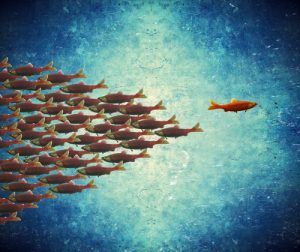 When you think about it, the proclamation that we introverts can be successful leaders, speakers, networkers, sales people, and entrepreneurs also flies in the face of conventional wisdom, the one that says that it’s the most extroverted among us that have the highest chance for success. We are, of course, debunking that particular myth, but I suspect there will be ample opportunity to challenge it for quite some time.
When you think about it, the proclamation that we introverts can be successful leaders, speakers, networkers, sales people, and entrepreneurs also flies in the face of conventional wisdom, the one that says that it’s the most extroverted among us that have the highest chance for success. We are, of course, debunking that particular myth, but I suspect there will be ample opportunity to challenge it for quite some time.
What’s the value in taking the contrarian point of view? It’s not about being difficult or disagreeing just for the fun of it. For my part, it helps to clarify my thinking, beliefs, and values. Instead of accepting whatever the cliché or conventional wisdom is, I like to ask a few questions that also work in so many coaching situations: is that true? Is that the full story? Is that my story? And ultimately I might come to the question, what are different ways to interpret that wisdom?
In the process of reflecting, I might come to agree with whatever the statement is. But at least I’ve put it through its paces and made it work for its truth. I don’t just go along to get along; I am intentional.
As one of my coaching colleagues put it, it helps me to live by design, not by default.
There are a few consistent pieces of conventional wisdom that have popped up a lot in the past few years, ones that I’ve dissected enough to have a certain amount of clarity about them. I’m sharing one them in this post. I chose it because it’s come up in several conversations in recent weeks. I see it frequently being shared without any commentary except for maybe a brief “Yes!” or “This.” You might agree with my perspective, you might disagree, or you might not know what you think quite yet. Whatever your response, I invite you to do a deep dive on your own feelings about it and gain clarity for yourself.
You also might read or listen to what I offer here and think I’m being a Debbie Downer, throwing a wet blanket on a dream. That’s not my intention. My intention is to provide a catalyst for your reflection. I want to create space for you to notice if and where attachment might be contributing to feeling stuck, frustrated, or impatient.
So what is this oft-quoted piece of advice that adorns thousands of motivational posters, Twitter and Facebook posts, and graduation gifts?
It’s “Follow your bliss,” brought to us by Joseph Campbell. The Joseph Campbell Foundation says that Campbell was “an American mythologist, writer and lecturer, best known for his work in comparative mythology and comparative religion. His work covers many aspects of the human experience. His philosophy is often summarized by his phrase: ‘Follow your bliss.’”
Here’s the context that surrounds that phrase. It was part of Bill Moyers’ interview for The Power of Myth series:
BILL MOYERS: Do you ever have the sense of… being helped by hidden hands?
JOSEPH CAMPBELL: All the time. It is miraculous. I even have a superstition that has grown on me as a result of invisible hands coming all the time – namely, that if you do follow your bliss you put yourself on a kind of track that has been there all the while, waiting for you, and the life that you ought to be living is the one you are living. When you can see that, you begin to meet people who are in your field of bliss, and they open doors to you. I say, follow your bliss and don’t be afraid, and doors will open where you didn’t know they were going to be.”
The Foundation site goes on to clarify the statement, saying “Yet it is important to note that following one’s bliss, as Campbell saw it, isn’t merely a matter of doing whatever you like, and certainly not doing simply as you are told. It is a matter of identifying that pursuit which you are truly passionate about and attempting to give yourself absolutely to it. In so doing, you will find your fullest potential and serve your community to the greatest possible extent.”
First, let me share what I love about this statement. I’ve found it to be true: when I am in tune with what brings me joy, contentment, and peace, I feel a sense of flow and connection. I don’t interpret “bliss” to mean ecstatic happiness, where everything is rainbows and unicorns. It’s more about that place where I feel grounded and most alive, most true. In that place, I meet people who reflect that bliss, and they open doors. Or at least, I finally see those people who have always been there but on the edges, and I finally open the doors that have always been available to me but outside of my limited perception.
I’d go so far as to say that following your bliss is part of the meaning of life. We are given this one opportunity to fully explore, embrace, and share whatever gifts, curiosities, and longings we possess. If we don’t follow them and try to manifest them, then we risk a life half-lived. We deprive others of experiencing who we are at our core.
“Then what’s the problem?”, you might be wondering. “If you think ‘follow your bliss’ is so awesome, what’s your beef?”
 Let me start with my own experience. I love photography. I love taking photos and learning techniques to capture a moment in a more compelling way. For me, it’s about creating not just a memory that I can enjoy, but a piece of art others can appreciate. When I have a camera in my hands, everything else drops away. And I’ve been told I have a good eye. A few people have even paid me for my photos, and that brings me great joy. It’s not so much the money that makes me happy. It’s the fact that my images have pleased someone else enough that they want them for their own.
Let me start with my own experience. I love photography. I love taking photos and learning techniques to capture a moment in a more compelling way. For me, it’s about creating not just a memory that I can enjoy, but a piece of art others can appreciate. When I have a camera in my hands, everything else drops away. And I’ve been told I have a good eye. A few people have even paid me for my photos, and that brings me great joy. It’s not so much the money that makes me happy. It’s the fact that my images have pleased someone else enough that they want them for their own.
I’ve had various ideas over the years for turning my passion into a business. But I always stop myself. I think about what it would mean to be a full-time photographer. My learning curve. The equipment. The fierce competition. The pressure. Sometimes I go back and look at my images from the first year I got a new, more professional camera, and I marvel at how much freer I was before I knew what I was doing. I was thinking less, experimenting more, and breaking rules I didn’t know existed.
Now I go out, and I’m conscious of the rules. I think too much. I try too hard. I put pressure on myself, and it’s not as much fun. It’s only when I relax and invite myself to forget what I know that I have fun again. I slip back into a state of flow and emerge with new energy. If I were to try to make my photography hobby into a formal business, I seriously wonder if my passion would be replaced with pressure.
And that brings me to my beef: in short, it’s that we too often believe “follow your bliss” means “monetize your bliss.”
It’s not always wise – financially, emotionally, spiritually – to try to monetize our passions. You can love dogs, you can adore knitting, you can think that there’s nothing better than making big pots of soup to share with the neighbors. You might be an awesome writer, singer, artist, yogi, carpenter, or decorator. Those things could all bring you bliss. You might experience that flow that causes you to lose track of time, you’re so absorbed in your task.
And just because you feel that flow, that doesn’t mean it’s supposed to be monetized.
It doesn’t have to be a business.
It doesn’t have to be your full-time job.
In fact, doing so may kill the love, or at least, dampen it. What was once a source of fun becomes tainted by pressure (to make money, to compete for business, to be “the best”). You see it as a “have to” instead of a “want to.”
There’s a simple reason why I think we get into trouble. We collapse two different ideas: Follow your bliss, and do what you love and the money will follow. And then we connect that to another popular quote: “Choose a job you love, and you will never have to work a day in your life” (Unknown).
I circle back to the fact that Campbell never said “make your bliss your life’s work.” The commentary on the quote offers that you should attempt to “give yourself absolutely to it,” but that doesn’t translate into “monetize it.” Yet that’s what we so often automatically do. We think that’s the answer to our work/life balance issues: if only we were passionately in love with our work, we would be happy.
This makes a certain amount of sense. After all, we all spend a significant portion of our days working. And if we’re going to spend time and money on our education, training, certifications, and professional development, we’d better darn well like what we do. I’m not saying that we should settle for less-than-satisfying work.
But we make ourselves miserable when we become attached to the idea that our passion also should be our profit. When we go down that road, we not only open up the possibility that our bliss will burn us out. We also end up being chronically dissatisfied with work we’re doing that’s good, that uses our talents and skills. We grow restless and unhappy, believing that “good enough” isn’t good enough. And the more we demonize good-enoughness, the more we romanticize our bliss.
One thing to consider, even if you succeed in monetizing your bliss: there’s a chance that at some point, even it will not live up to your expectations. Part of that is because we buy into the idea that if you love your work, it won’t feel like work. I call baloney! It’s true that when you love it, it’s easier. I am in my happy place when I’m facilitating a powerful coaching session or discussion, or when I’m finding just the right words to express myself. There are times when it’s bliss. And there are times when it’s a slog. There are moments, and even days, when I struggle to stay focused, when I doubt my abilities, when I’d rather take off and go take pictures of dahlias all day. Even work we love can feel like work. That’s important to remember when you consider what it means to give yourself fully to your bliss.
Here’s the bottom line: If you don’t feel an enthusiastic, no-way-to-ignore-it pull towards layering a business model on top of the things you love, then it’s probably best to embrace them as passions. Look at the way you make money as a means, not an end, to your bliss. In that case, your work should facilitate spending more time and energy on your bliss. If it doesn’t, then re-evaluate your choices about work and decide if something needs to change.
Of course, we want the way we make money to have meaning and value and being aligned with our gifts. Seriously explore how your bliss and your work might end up being the same thing. And if it’s possible to monetize your bliss and retain the love affair, then that’s fantastic. That’s an ideal situation.
That said, what you choose to do for a paycheck doesn’t tell the whole story of who you are. It’s one small piece of you. You are so much more than your 9-5 job!
I’m going to throw in one more thought before wrapping up: sometimes it’s not our bliss that leads us to our life’s highest purpose. It’s our sadness. Our anger. Our grief. That’s what I’ve noticed for myself over the past year. I’m aware that my spirit feels pulled towards the hopeless places, asking how hope can be created. It’s a weird tension, because it’s ingrained in us to pay attention to what makes us happy and do more of it. But what about what makes us sad? What if there’s deep meaning to be revealed in that space? What if our happiness comes from walking straight into the very thing that stimulates troubling emotions in us?
I suspect that’s the call followed by a lot of people who work and volunteer for challenging causes, such as those addressing trauma or abuse. Their bliss comes from righting a wrong, or bringing comfort and hope. Pay attention to anything that brings up strong emotion, whether it’s joy or anger. That emotion is information that points you towards your contribution to the world.
If you’ve found yourself in a tug-of-war between your bliss and your reality, you’re not alone! There’s lots to sift through. I hope this post has given you another way to think about the tension.
As you reflect, here are some questions to ask yourself:
What is most important that I need to express in the world? (There might be multiple answers to this, but I encourage you to think of no more than two or three)
Is that expression something that would serve me best – and serve the world best – as a vocation or avocation? (Where will it do the most good, and where can I be my best in delivering it?)
If it’s a vocation, is it best expressed though entrepreneurship or working for another organization?
If it’s an avocation, what about my current work situation is supportive of it? What’s not? What choices do I have to make my work more in service to my bliss?
When I hear my inner voice saying, “it’s trivial” or “I’m not qualified,” or whatever self-talk that’s keeping me small, who’s telling me that? What story is behind it? (That goes for vocation or avocation!)
What would happen if I try something new and it doesn’t work out? (Could I handle it and move on? HINT: yes ;-))
For me, this has been an ongoing inner dialogue that keeps me curious and seeking. I feel I’m closer to following my bliss in a healthy way than I ever have been before. It’s manifesting itself partly through my work, but mostly through the way I spend my leisure time. Perhaps someday the worlds will collide. Maybe I’ll be all bliss, all the time.
What’s more important now is that I release attachment to my bliss showing up in a certain way, especially in a way that feeds my bank balance. There’s a more critical balance to strive for: that of my body, mind, and spirit, all working together to bring joy to my life and joy to others.
Join me on Facebook | Twitter | LinkedIn | Instagram | Buy the Book | See my Photography | More Photography
Images:
Fish: ShutterStock photo ID: 311404241
Illustration: ShutterStock vector ID: 274987016
The post Ep152: Passion, Profit, and the Pursuit of Happiness (Blogcast) appeared first on The Introvert Entrepreneur.
Ep152: Passion, Profit, and the Pursuit of Happiness [Blogcast]
Listen to this post:
About a year ago, I did a quick audit of my blog post topics and found a theme, one in addition to the obvious introversion and entrepreneurship threads. When I looked at my thoughts on comfort zones, Nike ad slogans, exhortations to fake it ’til you make it, and other time tested truisms, my thoughts often followed a similar course: to be a contrarian.
 When you think about it, the proclamation that we introverts can be successful leaders, speakers, networkers, sales people, and entrepreneurs also flies in the face of conventional wisdom, the one that says that it’s the most extroverted among us that have the highest chance for success. We are, of course, debunking that particular myth, but I suspect there will be ample opportunity to challenge it for quite some time.
When you think about it, the proclamation that we introverts can be successful leaders, speakers, networkers, sales people, and entrepreneurs also flies in the face of conventional wisdom, the one that says that it’s the most extroverted among us that have the highest chance for success. We are, of course, debunking that particular myth, but I suspect there will be ample opportunity to challenge it for quite some time.
What’s the value in taking the contrarian point of view? It’s not about being difficult or disagreeing just for the fun of it. For my part, it helps to clarify my thinking, beliefs, and values. Instead of accepting whatever the cliché or conventional wisdom is, I like to ask a few questions that also work in so many coaching situations: is that true? Is that the full story? Is that my story? And ultimately I might come to the question, what are different ways to interpret that wisdom?
In the process of reflecting, I might come to agree with whatever the statement is. But at least I’ve put it through its paces and made it work for its truth. I don’t just go along to get along; I am intentional.
As one of my coaching colleagues put it, it helps me to live by design, not by default.
There are a few consistent pieces of conventional wisdom that have popped up a lot in the past few years, ones that I’ve dissected enough to have a certain amount of clarity about them. I’m sharing one them in this post. I choose it because it’s come up in several conversations in recent weeks. I see it frequently being shared without any commentary except for maybe a brief “Yes!” or “This.” You might agree with my perspective, you might disagree, or you might not know what you think quite yet. Whatever your response, I invite you to do a deep dive on your own feelings about it and gain clarity for yourself.
You also might read or listen to what I offer here and think I’m being a Debbie Downer, throwing a wet blanket on a dream. That’s not my intention. My intention is to provide a catalyst for your reflection. I want to create space for you to notice if and where attachment might be contributing to feeling stuck, frustrated, or impatient.
So what is this oft-quoted piece of advice that adorns thousands of motivational posters, Twitter and Facebook posts, and graduation gifts?
It’s “Follow your bliss,” brought to us by Joseph Campbell. The Joseph Campbell Foundation says that Campbell was “an American mythologist, writer and lecturer, best known for his work in comparative mythology and comparative religion. His work covers many aspects of the human experience. His philosophy is often summarized by his phrase: ‘Follow your bliss.’”
Here’s the context that surrounds that phrase. It was part of Bill Moyers’ interview for The Power of Myth series:
BILL MOYERS: Do you ever have the sense of… being helped by hidden hands?
JOSEPH CAMPBELL: All the time. It is miraculous. I even have a superstition that has grown on me as a result of invisible hands coming all the time – namely, that if you do follow your bliss you put yourself on a kind of track that has been there all the while, waiting for you, and the life that you ought to be living is the one you are living. When you can see that, you begin to meet people who are in your field of bliss, and they open doors to you. I say, follow your bliss and don’t be afraid, and doors will open where you didn’t know they were going to be.”
The Foundation site goes on the clarify the statement, saying “Yet it is important to note that following one’s bliss, as Campbell saw it, isn’t merely a matter of doing whatever you like, and certainly not doing simply as you are told. It is a matter of identifying that pursuit which you are truly passionate about and attempting to give yourself absolutely to it. In so doing, you will find your fullest potential and serve your community to the greatest possible extent.”
First, let me share what I love about this statement. I’ve found it to be true: when I am in tune with what brings me joy, contentment, and peace, I feel a sense of flow and connection. I don’t interpret “bliss” to mean ecstatic happiness, where everything is rainbows and unicorns. It’s more about that place where I feel grounded and most alive, most true. In that place, I meet people who reflect that bliss, and they open doors. Or at least, I finally see those people who have always been there but on the edges, and I finally open the doors that have always been available to me but outside of my limited perception.
I’d go so far as to say that following your bliss is part of the meaning of life. We are given this one opportunity to fully explore, embrace, and share whatever gifts, curiosities, and longings we possess. If we don’t follow them and try to manifest them, then we risk a life half-lived. We deprive others of experiencing who we are at our core.
“Then what’s the problem?”, you might be wondering. “If you think ‘follow your bliss’ is so awesome, what’s your beef?”
 Let me start with my own experience. I love photography. I love taking photos and learning techniques to capture a moment in a more compelling way. For me, it’s about creating not just a memory that I can enjoy, but a piece of art others can appreciate. When I have a camera in my hands, everything else drops away. And I’ve been told I have a good eye. A few people have even paid me for my photos, and that brings me great joy. It’s not so much the money that makes me happy. It’s the fact that my images have pleased someone else enough that they want them for their own.
Let me start with my own experience. I love photography. I love taking photos and learning techniques to capture a moment in a more compelling way. For me, it’s about creating not just a memory that I can enjoy, but a piece of art others can appreciate. When I have a camera in my hands, everything else drops away. And I’ve been told I have a good eye. A few people have even paid me for my photos, and that brings me great joy. It’s not so much the money that makes me happy. It’s the fact that my images have pleased someone else enough that they want them for their own.
I’ve had various ideas over the years for turning my passion into a business. But I always stop myself. I think about what it would mean to be a full-time photographer. My learning curve. The equipment. The fierce competition. The pressure. Sometimes I go back and look at my images from the first year I got a new, more professional camera, and I marvel at how much freer I was before I knew what I was doing. I was thinking less, experimenting more, and breaking rules I didn’t know existed.
Now I go out, and I’m conscious of the rules. I think too much. I try too hard. I put pressure on myself, and it’s not as much fun. It’s only when I relax and invite myself to forget what I know that I have fun again. I slip back into a state of flow and emerge with new energy. If I were to try to make my photography hobby into a formal business, I seriously wonder if my passion would be replaced with pressure.
And that brings me to my beef: in short, it’s that we too often believe “follow your bliss” means “monetize your bliss.”
It’s not always wise – financially, emotionally, spiritually – to try to monetize our passions. You can love dogs, you can adore knitting, you can think that there’s nothing better than making big pots of soup to share with the neighbors. You might be an awesome writer, singer, artist, yogi, carpenter, or decorator. Those things could all bring you bliss. You might experience that flow that causes you to lose track of time, you’re so absorbed in your task.
And just because you feel that flow, that doesn’t mean it’s supposed to be monetized.
It doesn’t have to be a business.
It doesn’t have to be your full-time job.
In fact, doing so may kill the love, or at least, dampen it. What was once a source of fun becomes tainted by pressure (to make money, to compete for business, to be “the best”). You see it as a “have to” instead of a “want to.”
There’s a simple reason why I think we get into trouble. We collapse two different ideas: Follow your bliss, and do what you love and the money will follow. And then we connect that to another popular quote: “Choose a job you love, and you will never have to work a day in your life” (Unknown).
I circle back to the fact that Campbell never said “make your bliss your life’s work.” The commentary on the quote offers that you should attempt to “give yourself absolutely to it,” but that doesn’t translate into “monetize it.” Yet that’s what we so often automatically do. We think that’s the answer to our work/life balance issues: if only we were passionately in love with our work, we would be happy.
This makes a certain amount of sense. After all, we all spend a significant portion of our days working. And if we’re going to spend time and money on our education, training, certifications, and professional development, we’d better darn well like what we do. I’m not saying that we should settle for less-than-satisfying work.
But we make ourselves miserable when we become attached to the idea that our passion also should be our profit. When we go down that road, we not only open up the possibility that our bliss will burn us out. We also end up being chronically dissatisfied with work we’re doing that’s good, that uses our talents and skills. We grow restless and unhappy, believing that “good enough” isn’t good enough. And the more we demonize good-enoughness, the more we romanticize our bliss.
One thing to consider, even if you succeed in monetizing your bliss: there’s a chance that at some point, even it will not live up to your expectations. Part of that is because we buy into the idea that if you love your work, it won’t feel like work. I call baloney! It’s true that when you love it, it’s easier. I am in my happy place when I’m facilitating a powerful coaching session or discussion, or when I’m finding just the right words to express myself. There are times when it’s bliss. And there are times when it’s a slog. There are moments, and even days, when I struggle to stay focused, when I doubt my abilities, when I’d rather take off and go take pictures of dahlias all day. Even work we love can feel like work. That’s important to remember when you consider what it means to give yourself fully to your bliss.
Here’s the bottom line: If you don’t feel an enthusiastic, no-way-to-ignore-it pull towards layering a business model on top of the things you love, then it’s probably best to embrace them as passions. Look at the way you make money as a means, not an end, to your bliss. In that case, your work should facilitate spending more time and energy on your bliss. If it doesn’t, then re-evaluate your choices about work and decide if something needs to change.
Of course, we want the way we make money to have meaning and value and being aligned with our gifts. Seriously explore how your bliss and your work might end up being the same thing. And if it’s possible to monetize your bliss and retain the love affair, then that’s fantastic. That’s an ideal situation.
That said, what you choose to do for a paycheck doesn’t tell the whole story of who you are. It’s one small piece of you. You are so much more than your 9-5 job!
I’m going to throw in one more thought before wrapping up: sometimes it’s not our bliss that leads us to our life’s highest purpose. It’s our sadness. Our anger. Our grief. That’s what I’ve noticed for myself over the past year. I’m aware that my spirit feels pulled towards the hopeless places, asking how hope can be created. It’s a weird tension, because it’s ingrained in us to pay attention to what makes us happy and do more of it. But what about what makes us sad? What if there’s deep meaning to be revealed in that space? What if our happiness comes from walking straight into the very thing that stimulates troubling emotions in us?
I suspect that’s the call followed by a lot of people who work and volunteer for challenging causes, such as those addressing trauma or abuse. Their bliss comes from righting a wrong, or bringing comfort and hope. Pay attention to anything that brings up strong emotion, whether it’s joy or anger. That emotion is information that points you towards your contribution to the world.
If you’ve found yourself in a tug-of-war between your bliss and your reality, you’re not alone! There’s lots to sift through. I hope this post has given you another way to think about the tension.
As you reflect, here are some questions to ask yourself:
What is most important that I need to express in the world? (There might be multiple answers to this, but I encourage you to think of no more than two or three)
Is that expression something that would serve me best – and serve the world best – as a vocation or avocation? (Where will it do the most good, and where can I be my best in delivering it?)
If it’s a vocation, is it best expressed though entrepreneurship or working for another organization?
If it’s an avocation, what about my current work situation is supportive of it? What’s not? What choices do I have to make my work more in service to my bliss?
When I hear my inner voice saying, “it’s trivial” or “I’m not qualified,” or whatever self-talk that’s keeping me small, who’s telling me that? What story is behind it? (That goes for vocation or avocation!)
What would happen if I try something new and it doesn’t work out? (Could I handle it and move on? HINT: yes ;-))
For me, this has been an ongoing inner dialogue that keeps me curious and seeking. I feel I’m closer to following my bliss in a healthy way than I ever have been before. It’s manifesting itself partly through my work, but mostly through the way I spend my leisure time. Perhaps someday the worlds will collide. Maybe I’ll be all bliss, all the time.
What’s more important now is that I release attachment to my bliss showing up in a certain way, especially in a way that feeds my bank balance. There’s a more critical balance to strive for: that of my body, mind, and spirit, all working together to bring joy to my life and joy to others.
Join me on Facebook | Twitter | LinkedIn | Instagram | Buy the Book | See my Photography | More Photography
Images:
Fish: ShutterStock photo ID: 311404241
Illustration: ShutterStock vector ID: 274987016
The post Ep152: Passion, Profit, and the Pursuit of Happiness [Blogcast] appeared first on The Introvert Entrepreneur.
May 18, 2017
Ep151: Sherre Hirsch on Navigating Life’s Thresholds
About Sherre Hirsch
 Sherre Hirsch is a rabbi, author and spiritual life consultant. Her mission is to empower individuals to be their own spiritual guides. After eight years in the pulpit, Hirsch left Sinai Temple, Los Angeles’s largest and oldest conservative temple, in 2006. Since then, she has published We Plan, God Laughs: What to Do When Life Hits You Over the Head, and in August 2015 published Thresholds: How to Thrive Through Life’s Transitions to Live Fearlessly and Regret-Free – both with Random House. In addition to writing, Hirsch has appeared on a variety of national media outlets from The Today Show to Extra! She counsels private clients, speaks nationwide at engagements for corporate and religious organizations, and teaches classes across a variety of themes. Hirsch serves as the Spiritual Life consultant for Canyon Ranch Properties, where she organizes retreats and leads workshops focused on coping with grief and the healing process, and as the Associate Vice President for Jewish Education, Hillel International, where she develops strategy and inspirational Jewish education courses and programs for Hillel professionals.
Sherre Hirsch is a rabbi, author and spiritual life consultant. Her mission is to empower individuals to be their own spiritual guides. After eight years in the pulpit, Hirsch left Sinai Temple, Los Angeles’s largest and oldest conservative temple, in 2006. Since then, she has published We Plan, God Laughs: What to Do When Life Hits You Over the Head, and in August 2015 published Thresholds: How to Thrive Through Life’s Transitions to Live Fearlessly and Regret-Free – both with Random House. In addition to writing, Hirsch has appeared on a variety of national media outlets from The Today Show to Extra! She counsels private clients, speaks nationwide at engagements for corporate and religious organizations, and teaches classes across a variety of themes. Hirsch serves as the Spiritual Life consultant for Canyon Ranch Properties, where she organizes retreats and leads workshops focused on coping with grief and the healing process, and as the Associate Vice President for Jewish Education, Hillel International, where she develops strategy and inspirational Jewish education courses and programs for Hillel professionals.
Key Conversation Points
Prioritizing introspection as an extrovert
The social spectrum
Conflating “Hallways (transitions)” with depression and other serious issues
When fixing something can make it worse
Taking respite opportunities in your life
Emotional recovery
Guidance through your social circle
How emotional transitions are different for everyone
Transitions that don’t always have a happy ending
Navigating “plot twists”
The spectrum of decision-making
The importance of hope
Resources Mentioned in the Podcast*
We Plan, God Laughs: Ten Steps to Finding Your Divine Path When Life is Not Turning Out Like You Wanted | Sherre Hirsch
Thresholds: How to Thrive Through Life’s Transitions to Live Fearlessly and Regret-Free | Sherre Hirsch
Lessons from the Liminal Edges of Life (Blogcast)
Virtual Networking event, May 25, 2017
How to write a review in iTunes (via HubSpot)
How to write an Amazon review (via Amazon)
Connect with Sherre
Sherre’s Introvert Island Book Selections*
The Old Testament (I chose “The Jewish Bible: Tanakh: The Holy Scriptures — The New JPS Translation According to the Traditional Hebrew Text: Torah * Nevi’im * Kethuvim” ~BB)
Unbroken: A World War II Story of Survival, Resilience, and Redemption | Laura Hillenbrand
Family Pictures (I chose this photo album for you! ~BB)
If You Enjoyed the Podcast
You can subscribe to The Introvert Entrepreneur Podcast on on iTunes or Stitcher. Please leave an honest review on iTunes or Stitcher. If you want to hear more news from The Introvert Entrepreneur including and beyond the podcasts, join the enewsletter mailing list.
*Amazon links are affiliate, meaning I receive a few pennies when you purchase through my link. You get some retail therapy, I get additional resources to keep bringing you great podcasts. Win-Win!!
The post Ep151: Sherre Hirsch on Navigating Life’s Thresholds appeared first on The Introvert Entrepreneur.
May 3, 2017
Ep150: Emilie Wapnick on How to Be Everything
About Emilie Wapnick
 Emilie Wapnick is a writer, career coach, blogger, and community leader. She is the founder and creative director at Puttylike.com, where she helps multipotentialites (people with many passions and creative pursuits) integrate all of their interests to create dynamic, fulfilling, and fruitful careers and lives. Unable to settle on one path herself, Emilie studied music, art, film production and law, graduating from the Law Faculty at McGill University. Emilie’s TED talk has been viewed over 3.7 million times, and has been translated into 36 languages. She’s been featured in Fast Company, Forbes, Financial Times, The Huffington Post, BBC, and Lifehacker. Her book How to Be Everything: a Guide for Those Who (Still) Don’t Know What They Want to Be When They Grow Up, comes out with HarperCollins in May 2017.
Emilie Wapnick is a writer, career coach, blogger, and community leader. She is the founder and creative director at Puttylike.com, where she helps multipotentialites (people with many passions and creative pursuits) integrate all of their interests to create dynamic, fulfilling, and fruitful careers and lives. Unable to settle on one path herself, Emilie studied music, art, film production and law, graduating from the Law Faculty at McGill University. Emilie’s TED talk has been viewed over 3.7 million times, and has been translated into 36 languages. She’s been featured in Fast Company, Forbes, Financial Times, The Huffington Post, BBC, and Lifehacker. Her book How to Be Everything: a Guide for Those Who (Still) Don’t Know What They Want to Be When They Grow Up, comes out with HarperCollins in May 2017.
Key Conversation Points
Finding motivation for overcoming a specific fear
Why boundaries for yourself and others are important
How to engage others with a proper buffer
Differentiating between a niche audience and a broader one
Defining “multipotentialite”
The relationships between different fields
How to decide if you should monetize a passion
The simplest way to tell others what you do when you do many different things
Avoiding limiting language
Resources Mentioned in the Podcast
How To Be Everything: A Guide for Those Who (Still) Don’t Know What They Want to Be When They Grow Up — Emilie Wapnick
PuttyLike — Start Here
Emilie’s TEDx Talk
Connect with Emilie
Emilie’s Introvert Island Book Selections*
The Art of Asking: How I Learned to Stop Worrying and Let People Help | Amanda Palmer
When Breath Becomes Air | Paul Kalanithi
A Journal to Write In
If You Enjoyed the Show
You can subscribe to The Introvert Entrepreneur Podcast on on iTunes or Stitcher. Please leave an honest review on iTunes or Stitcher. If you want to hear more news from The Introvert Entrepreneur including and beyond the podcasts, join the enewsletter mailing list.
*Amazon links are affiliate, meaning I receive a few pennies when you purchase through my link. You get some retail therapy, I get additional resources to keep bringing you great podcasts. Win-Win!!
The post Ep150: Emilie Wapnick on How to Be Everything appeared first on The Introvert Entrepreneur.
April 12, 2017
Ep149: Kwame Christian and Negotiating for Success
About Kwame Christian
 Kwame is a business lawyer and the founder of the American Negotiation Institute. He is passionate about teaching entrepreneurs and business professionals the art of negotiation so they can get better deals and advance their careers. He is regularly invited to give negotiation seminars and consults with individuals and companies to create and implement powerful negotiation strategies. He also hosts a podcast previously called Negotiation for Entrepreneurs, now called Negotiate Anything, where he interviews successful entrepreneurs and shares powerful persuasion techniques.
Kwame is a business lawyer and the founder of the American Negotiation Institute. He is passionate about teaching entrepreneurs and business professionals the art of negotiation so they can get better deals and advance their careers. He is regularly invited to give negotiation seminars and consults with individuals and companies to create and implement powerful negotiation strategies. He also hosts a podcast previously called Negotiation for Entrepreneurs, now called Negotiate Anything, where he interviews successful entrepreneurs and shares powerful persuasion techniques.
Key Conversation Points
Designating a specific time for solace and reflection
Realizing your true value and negotiating your worth
Proper research of market rates for your product or service
The concept of “Anchoring”
Exercising flexibility in budgeting for the best possible outcome
The best way to turn people down
Utilizing proper persuasion tools
The “no sandwich”
The importance of research and preparation
Anchoring in social situations and managing energy
Tips for maintaining and/or regaining control
Resources Mentioned in the Podcast
Ep132: Kwame Christian on Negotiation Skills for Entrepreneurs
American Negotiation Institute Guide – Introvert
Podcast – Negotiate Anything
Virtual Networking for Introverts
Schedule an Information Session with Beth
Connect with Kwame
Kwame’s Introvert Island Book Selections*
Lean In: Women, Work and the Will to Lead | Sheryl Sandberg
Hillbilly Elegy: A Memoir of a Family and Culture in Crisis | J.D. Vance
50 Philosophy Classics: Thinking, Being, Acting, Seeing, Profound Insights and Powerful Thinking from Fifty Key Books (50 Classics) | Tom Butler-Bowdo
If You Enjoyed the Show
You can subscribe to The Introvert Entrepreneur Podcast on on iTunes or Stitcher. Please leave an honest review on iTunes or Stitcher. If you want to hear more news from The Introvert Entrepreneur including and beyond the podcasts, join the enewsletter mailing list.
*Amazon links are affiliate, meaning I receive a few pennies when you purchase through my link. You get some retail therapy, I get additional resources to keep bringing you great podcasts. Win-Win!!
The post Ep149: Kwame Christian and Negotiating for Success appeared first on The Introvert Entrepreneur.
March 30, 2017
Ep148: Lolly Daskal Helps Us Close the Leadership Gap
If You Enjoy the Show
You can subscribe to The Introvert Entrepreneur Podcast on on iTunes or Stitcher. Please leave an honest review on iTunes or Stitcher. If you want to hear more news from The Introvert Entrepreneur including and beyond the podcasts, join the enewsletter mailing list.
About Lolly
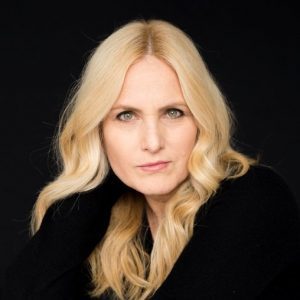 Lolly Daskal is one of the most sought-after executive leadership coaches in the world. Her extensive cross-cultural expertise spans 14 countries, six languages and hundreds of companies. As founder and CEO of Lead From Within, her proprietary leadership program is engineered to be a catalyst for leaders who want to enhance performance and make a meaningful difference in their companies, their lives, and the world. Based on a mix of modern philosophy, science, and nearly thirty years coaching top executives, Lolly’s perspective on leadership continues to break new ground and produce exceptional results. Of her many awards and accolades, Lolly was designated a Top-50 Leadership and Management Expert by Inc. magazine. Huffington Post honored Lolly with the title of The Most Inspiring Woman in the World. Her writing has appeared in HBR, Inc.com, Fast Company (Ask The Expert), Huffington Post, Psychology Today, and others.
Lolly Daskal is one of the most sought-after executive leadership coaches in the world. Her extensive cross-cultural expertise spans 14 countries, six languages and hundreds of companies. As founder and CEO of Lead From Within, her proprietary leadership program is engineered to be a catalyst for leaders who want to enhance performance and make a meaningful difference in their companies, their lives, and the world. Based on a mix of modern philosophy, science, and nearly thirty years coaching top executives, Lolly’s perspective on leadership continues to break new ground and produce exceptional results. Of her many awards and accolades, Lolly was designated a Top-50 Leadership and Management Expert by Inc. magazine. Huffington Post honored Lolly with the title of The Most Inspiring Woman in the World. Her writing has appeared in HBR, Inc.com, Fast Company (Ask The Expert), Huffington Post, Psychology Today, and others.
Key Conversation Points
Nurturing your introversion before extroverted activities
The importance of being genuine
Establishing presence without having to say a word
How to best create and nurturing genuine connections with others
The pitfalls of every personality archetype and how to conquer them
Being great without being “perfect”
Celebrating your unique strengths
Resources Mentioned in the Podcast
The Leadership Gap: What Gets Between You and Your Greatness | Lolly Daskal (website)
Voice Dialogue International
Psychology Today post on Voice Dialogue Technique
The Introvert Entrepreneur Book
Connect with Lolly
Book on Amazon
Website
Facebook
Twitter
LinkedIn
Lolly’s Introvert Island Book Selections*
Man’s Search for Meaning | Viktor Frankl
The Hero with a Thousand Faces | Joseph Campbell
Works of Carl Gustav Jung (I chose “Man and His Symbols” ~BB)
*Amazon links are affiliate, meaning I receive a few pennies when you purchase through my link. You get some retail therapy, I get additional resources to keep bringing you great podcasts. Win-Win!!
The post Ep148: Lolly Daskal Helps Us Close the Leadership Gap appeared first on The Introvert Entrepreneur.
March 16, 2017
Ep147: Andy Molinsky on How to Reach Beyond Our Comfort Zone
If You Enjoyed the Show
Share with your friends and make this podcast a regular part of your listening schedule! You can subscribe to The Introvert Entrepreneur Podcast on on iTunes or Stitcher. Honest reviews are always welcome on iTunes or Stitcher. And if you want to hear more news from The Introvert Entrepreneur including and beyond the podcasts, join the enewsletter mailing list.
About Andy Molinsky
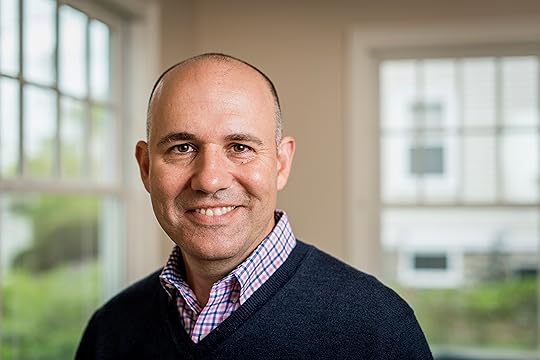 Andy Molinsky is a Professor at Brandeis University’s International Business School. Andy helps people develop the insights and courage necessary to act outside their personal and cultural comfort zones when doing important, but challenging, tasks in work and life. His work has been featured in Harvard Business Review, Inc. Magazine, Psychology Today, the Financial Times, the Boston Globe, NPR and Voice of America. Andy was awarded as a Top Voice for LinkedIn for his work in education. His first book, Global Dexterity (Harvard Business Review Press, 2013), received the Axiom Award (Silver Medal) for Best Business Book in International Business & Globalization and has been used widely in organizations around the world, including Boeing, AIG, the US Air Force Academy, and the Clinton Foundation, among others. His latest book is Reach: A New Strategy to Step Outside Your Comfort Zone, Build Confidence, and Rise to the Challenge.
Andy Molinsky is a Professor at Brandeis University’s International Business School. Andy helps people develop the insights and courage necessary to act outside their personal and cultural comfort zones when doing important, but challenging, tasks in work and life. His work has been featured in Harvard Business Review, Inc. Magazine, Psychology Today, the Financial Times, the Boston Globe, NPR and Voice of America. Andy was awarded as a Top Voice for LinkedIn for his work in education. His first book, Global Dexterity (Harvard Business Review Press, 2013), received the Axiom Award (Silver Medal) for Best Business Book in International Business & Globalization and has been used widely in organizations around the world, including Boeing, AIG, the US Air Force Academy, and the Clinton Foundation, among others. His latest book is Reach: A New Strategy to Step Outside Your Comfort Zone, Build Confidence, and Rise to the Challenge.
Key Conversation Points
Personality type self-identification
Making massive shifts successfully
Analyzing painful/challenging tasks
The hidden value of comfort zones
The best time to challenge your comfort zone
Identifying when to stay in your comfort zone
Personal vs. professional conviction
Tailoring an uncomfortable activity to make it easier to cope with
Customization of your coping mechanisms
Setting realistic expectations
Dealing with resentment challenges
Realizations after leaving your comfort zone
Gaining momentum towards your goals
Resources Mentioned in the Podcast
Virtual Networking for Introverts
“Confessions” blog post
“Comfort Zone” blog post
Arden Clise, Clise Etiquette (guest presenter for March 23 Virtual Networking)
Reach: A New Strategy to Step Outside Your Comfort Zone, Build Confidence, and Rise to the Challenge | Andy Molinsky
Global Dexterity: How to Adapt Your Behavior Across Cultures Without Losing Yourself in the Process | Andy Molinsky
Small Planet Studio/Cate Brubaker
The Introvert Entrepreneur: Amplify Your Strengths and Create Success on Your Own Terms | Beth Buelow
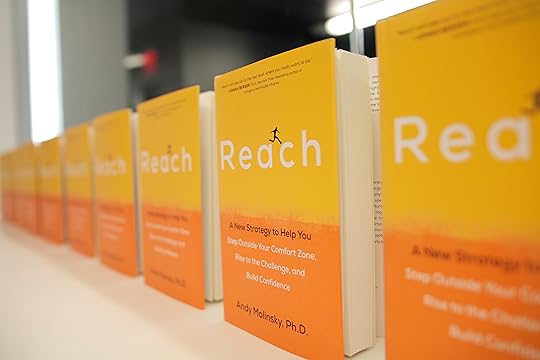 Connect with Andy
Connect with Andy
Website
Facebook
Twitter
LinkedIn
Andy’s Introvert Island Book Selections*
Various cookbooks by Dorie Greenspan
Note from Beth: I chose three based on what I’m craving at the moment… 
March 1, 2017
Ep146: Patty K on Introducing Yourself with Ease
About Patty K.

Patty K is a marketing consultant and business coach who specializes in helping people create businesses as unique as they are. Her multi-talented clients offer services that are unique, powerful – and sometimes hard to explain. Instead of niche-ing down into an over-simplified version of their work — which is what most marketing professionals advise them to do — Patty helps them integrate everything into what she calls a YOU-Shaped Business.
Key Conversation Points
Introversion and self-promotion
The value of preparation before introducing yourself and your business to others
Effortlessly appealing to a broader audience even when operating in a niche
Establishing genuine connections with others
How being too esoteric will harm your interactions
Explaining your business in common language for mass appeal
Being more spontaneous than scripted but still comfortable
Resources Mentioned in the Podcast*
We Are All Completely Beside Ourselves: A Novel | Karen Joy Fowler
Made to Stick | Chip Heath & Dan Heath
Start With Why | Simon Sinek
Search for Meaning Festival at Seattle University
Rabbi Sherre Hirsch
Virtual Networking for Introverts
Connect with Patty
Patty’s Introvert Island Book Selections
A Kindle with 30 book selections: 10 business/10 Personal Development/10 Novels
(Did I mention Patty is a rebel?! ;-))
If You Enjoyed the Show
You can subscribe to The Introvert Entrepreneur Podcast on on iTunes or Stitcher. Please leave an honest review on iTunes or Stitcher. If you want to hear more news from The Introvert Entrepreneur including and beyond the podcasts, join the enewsletter mailing list.
*Amazon links are affiliate, meaning I receive a few pennies when you purchase through my link. You get some retail therapy, I get additional resources to keep bringing you great podcasts. Win-Win!
The post Ep146: Patty K on Introducing Yourself with Ease appeared first on The Introvert Entrepreneur.
February 15, 2017
Lessons from the Liminal Edges of Life [Ep145: Blogcast]
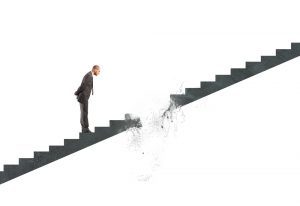
Has this ever happened to you?
[This post is also a blogcast; you can listen here:]
Back in the summer of 2008, the first module I completed as part of my training to become a coach was a process called “Living Your Vision®.” The idea was that before we could support our clients in discovering their truths and acting on those revelations, we needed to do that work ourselves. After three-days of intensive reflection with my colleagues, I’d crafted a highly personal vision and purpose statement. My vision statement has continued to be a powerful reminder of who I am at my core. Yet it’s my purpose statement that is resonating with me most these days. Almost 9 years after writing the words, I’m astounded by how much they still say about what’s most important to me.
Here’s what I wrote:
My purpose is to live within the questions, hold the sacred space between the words, gratefully and courageously receive and create possibility, and inspire others to fully realize their essence.
To summarize, my purpose is to live in curiosity, openness, possibility, and truth. That’s not my goal; it’s my purpose. It’s why I was put here on this earth, because when I fully embody those traits, I make everything else possible. If I don’t embody them, then I’m set adrift and lose my sense of purpose.
The Challenge with In-Betweenness
That’s the challenge that I’m sitting with right now. And it occurs to me that regardless of if my purpose resonates with you, we probably have something in common: a discomfort with that space in between, where we feel adrift. We experience it at different points in life, like between the final day of classes and graduation, when we find ourselves between jobs, when a mother is enduring nine months of waiting and planning, or at its most painful, when we come to the realization that a beloved person, or even a pet, is no longer happy and healthy and is much closer to the end than to the beginning. There’s a sense of helplessness that can set in. We’re aware of where we’ve been, but we’re not always sure where we’re going.
There’s also a sense of possibility, sure – depending on what else is happening in our lives, or how optimistic we are about the future, we can feel an overwhelming excitement and anticipation for what’s next, even though (and maybe even especially because) we don’t fully know where we’re going.
That said, based on the millions of words written about change and how to deal with it, I feel secure in speculating that most of us feel a bit lost in that space in between, even if we put on a brave face, even if we know that everything is going to be okay.
The challenge for me is that while my statement is true – I hold the sacred space between the words – I’m much better at doing that for others than I am doing it for myself. When I reflect on my life, I’ve tended to leap from space to space without lingering.
The first time I was fully aware of the pattern was in the waning days of graduate school. I was part of an arts administration program that had three semesters of study and one semester of internship. The keep-people-at-a-distance aspect of my introversion was out in full force those days. I was part of a small program – there were only 12 of us – but I still was reluctant to become too enmeshed with my fellow students. I collaborated on group projects and was a team player, but I didn’t socialize with them and didn’t get to know them very well. It was only in the final month or so of the program that I relaxed and let my personality come through. In doing so, I found out my classmates were charming, funny, and people I probably would have enjoyed getting to know. And they seemed to enjoy knowing me.
But even so, the day classes were over in early December, 1995, I was on the road from Bloomington to Milwaukee, without so much as a look back over my shoulder. Six months later, on graduation day, I made the impulsive decision to drive to Bloomington to see if I could find the ceremony and connect with my classmates. Of course, I never found them. My trip ended up being nothing more than a nice drive through the beautiful Indiana countryside. I remember feeling both silly and sad that I had missed the opportunity to know them better when I was still around them.
There were two lessons in that experience: (1) let people in and risk the possibility of friendship, love, and connection, and (2) don’t rush the in-between spaces in life.
It’s that second lesson that I need to lean into right now. Perhaps you feel it, too? Over the past few months, I’ve noticed a lot of restlessness and questioning amongst my friends and colleagues. There’s a sense that what they knew before isn’t adequately serving them in the present, and something new is waiting to be revealed. I know for certain that the recent election cycle in the United States played a big role in waking people up. But I only see that as a pivot point, not the actual reason. The shift has been happening for a while. We’ve been in that in-between place of what was then and what is to be for a long time. It’s a more significant shift than what we experience in the everyday. It’s like we’ve slowly learned a truth and are now wondering what to do with what we’ve learned.
Becoming Liminal
There are different names for this in-between state: being in limbo, in transition, at the threshold, on a plateau, or suspended in time. One of the most vivid expressions of it comes from Parker Palmer, who uses the phrase, “tragic gap.” As he describes it, it’s “the gap between the hard realities around us and what we know is possible — not because we wish it were so, but because we’ve seen it with our own eyes.” That particular phrase – the tragic gap – captures some of the angst that can happen when we’re in the midst of a psychological, societal, or emotional transition.
I recently had dinner with a friend, and as I talked about this feeling of restlessness, she offered up my new favorite word: liminal. Liminal is defined as being in an intermediate state, phase, or condition. In another definition, it’s “of, relating to, or situated at a sensory threshold; barely perceptible or capable of eliciting a response.”
Here’s what Wikipedia says about it:
In anthropology, liminality (from the Latin word līmen, meaning “a threshold”[1]) is the quality of ambiguity or disorientation that occurs in the middle stage of rituals, when participants no longer hold their pre-ritual status but have not yet begun the transition to the status they will hold when the ritual is complete. During a ritual’s liminal stage, participants “stand at the threshold”[2] between their previous way of structuring their identity, time, or community, and a new way, which the ritual establishes.
There are multiple layers in that explanation, and the idea that there’s disorientation deeply resonates with me. I’ve mentioned a bit on this podcast but more in other interviews that I feel I’m in that liminal state. I’ve felt for about a year that there’s a new phase of my business emerging.
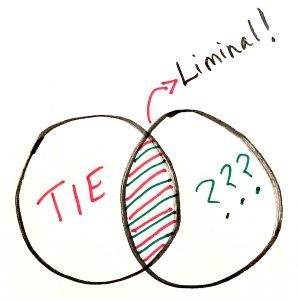
Me, now.
The best I can describe it is to draw a Venn diagram with two overlapping circles. The circle on the left is The Introvert Entrepreneur and where I currently am. The circle on the right represents whatever is next. And I am looking for what is in between those two, that state of being which will encompass pieces of what I am doing now with pieces of what I will be doing soon.
I am most curious about that overlapping section, that liminal space that reflects the intersection of what is, with what will be. I know that if I can lean into and embrace the space in between that, what is next will take care of itself. That’s something I’ve always trusted: if I do the best I know how in the present moment, the next moment will be exactly what it’s supposed to be.
It’s easy to embrace that philosophy when one is firmly planted in one circle or the other. But when the denser, more intense middle space approaches – when one is almost to the plateau, that liminal edge – then it’s not so easy anymore. The part of us that thrives on certainty wants answers, and wants them yesterday.
I could skip the liminal space in the past because the next school, the next job, the next town, was always known in advance. As an entrepreneur, it’s not as clear-cut. It’s much more of an evolution, rather than a start-stop-start pattern. It’s a different experience when the thing you’re evolving is your own creation. It’s a huge disservice to what you’ve built and the people you serve if you simply apply the start-stop-start mentality. The threshold, the process, must be honored.
When did you last feel you were standing at the threshold? When were you aware that the space that contained your sense of identity, time, or community was a bit distant, and you were still in it but at the same time aware that you were moving out of it? It can be disconcerting to be in that space, because the rituals that happen before and after seem to disappear. A ritual is a series of actions or activities that happen in a prescribed manner. There’s a level of predictability to them, and we take comfort in that routine. I see ritual as a close cousin of tradition. Both bring order to chaos. They help us to feel anchored and secure.
In the liminal space, the anchor is still there, but it’s not digging securely into anything. It’s looking for a new home, a new ritual. My husband came up with the perfect way of describing what he’s witnessing. He says I’m “pre-verbal.” What’s ahead is unknown, and I’m having trouble putting words to it. When I try to articulate what’s swirling in my head, it comes out so jumbled that I feel like I’m learning a new language. I am, in effect, and I’m in a pre-verbal stage.
Moving Through Pre-Verbal
So what do you do when you’re in that space? What if you can’t even find the words to describe your confusion? And what do you do when you’re yearning for the stability of whatever’s next, even if you have to skip town from Bloomington to Milwaukee to get there?
It doesn’t matter if it’s happening in your business or your life. The response is the same.
You wait. You breathe. You listen. You get curious. You notice and let go of attachments. You trust that the next phase or step will reveal itself if you remain open to possibility. You do the best you can to stay present in the moment, without going down the rabbit hole of what ifs, and without getting ahead of yourself.
Then you wait, you breathe, get curious, and let go some more. Until finally the new ritual that brings you to the new place starts to emerge from the fog.
There’s a gift in the liminal space, that sacred space between the words. We are given an opportunity to notice – and even to celebrate – where we’ve been, without any burdens about where we’re going. There’s nothing but possibility. Sure, it’s all squishy. The ground might feel uncertain under your feet. It’s tempting to get in the car and drive as fast as possible in the direction of your next destination.
Resist the temptation. Instead, wait. Breathe. Listen. Be Curious. Notice. Let go. Trust.
Life is full of these liminal edges. In one sense, they’re really what organizational development types call growth or growing edges. They’re areas where we have some strength or potential, but something’s holding us back – often fear. Perhaps there’s wisdom in the fear. It slows us down and keeps us safe for just a little bit longer.
I’m starting to believe it’s where we experience our greatest expansion. If we fully let ourselves be in that in-between space, our heart has room to speak to both the fear and the possibility. Its voice isn’t getting swallowed up by new rituals that require our complete attention. And then when we move into that new space, we’re better informed. We’re more solid in ourselves and in our truth. We’ve given ourselves the gift of confronting our fears, of being untethered and free, of dwelling in possibility.
While I don’t think there’s a linguistic connection, I like that liminal sounds like a close relative of illuminate. Instead of it feeling like a place of shadows and uncertainty, there’s an invitation to see it as a place where light can shine on what’s emerging. As I’ve written before, fears grow in the dark. They shrink in the light.
As I wrap up these thoughts – for now (so much more to say!) – I’m reminded of one of my absolute favorite quotes. It’s about writing, but it’s really about life. It comes from E.L. Doctorow, who said, “It’s like driving a car at night. You never see further than your headlights, but you can make the whole trip that way.” Being in the liminal space is like driving the car in the dark, and the headlights are the illumination, the hope and possibility that light the way.
It’s all you need to find your way home.
PS: If you’re looking for the Virtual Networking for Introverts information I mentioned in blogcast, you’ll find it here!
The post Lessons from the Liminal Edges of Life [Ep145: Blogcast] appeared first on The Introvert Entrepreneur.
February 2, 2017
Ep144: Betsy Talbot on Turning Points and Beginning Again
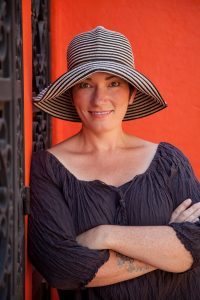 What happens when you launch a subscription blog about preparing to travel the world and you finally reach your goals? This week’s guest is an introvert entrepreneur who’s no stranger to The Introvert Entrepreneur Podcast — Betsy Talbot. After spending years nurturing a business and trying to find a balance between her personal and professional life that kept escaping her, she came to an unorthodox decision. She and her husband, Warren, would enter a several years’ long transition involving a complete purge of the unnecessary—including material goods and emotional baggage—that would allow them to travel the world with little worry. In this interview, she shares what she’s been up to since her Married with Luggage series, and what new avenues she has pursued in her professional life in order to both make the most of her talents and maintain her lifestyle in rural Spain.
What happens when you launch a subscription blog about preparing to travel the world and you finally reach your goals? This week’s guest is an introvert entrepreneur who’s no stranger to The Introvert Entrepreneur Podcast — Betsy Talbot. After spending years nurturing a business and trying to find a balance between her personal and professional life that kept escaping her, she came to an unorthodox decision. She and her husband, Warren, would enter a several years’ long transition involving a complete purge of the unnecessary—including material goods and emotional baggage—that would allow them to travel the world with little worry. In this interview, she shares what she’s been up to since her Married with Luggage series, and what new avenues she has pursued in her professional life in order to both make the most of her talents and maintain her lifestyle in rural Spain.
About Betsy Talbot
Betsy Talbot is a 40-something traveler, author, and content marketing expert. When she’s not traveling or penning books about love, adventure, and self-discovery, she is hiking, learning flamenco dancing, and drinking wine in a tiny whitewashed village in Spain.
Key Conversation Points
• Micro-managing your introverted energy for maximum efficiency
• The unique qualities of an introvert-extrovert relationship
• The impact of transitions
• The advantages of having a strong sense of self
• Prioritizing the little things in your life for a larger impact
• Knowing the best time to “move on”
• Living a well-tailored life
Connect with Betsy
Website
Facebook
LinkedIn
Books: The Late Bloomers Series
Podcast featuring Betsy and Warren Talbot
Betsy’s Introvert Island Book Selections*
An Exaltation of Larks | Susanne Laqueur
1984 | George Orwell
If You Enjoyed the Show
You can subscribe to The Introvert Entrepreneur Podcast on on iTunes or Stitcher. Please leave an honest review on iTunes or Stitcher. If you want to hear more news from The Introvert Entrepreneur including and beyond the podcasts, join the enewsletter mailing list.
*Amazon links are affiliate, meaning I receive a few pennies when you purchase through my link. You get some retail therapy, I get additional resources to keep bringing you great podcasts, and the author still gets all their royalties. Win-Win-Win!
The post Ep144: Betsy Talbot on Turning Points and Beginning Again appeared first on The Introvert Entrepreneur.



